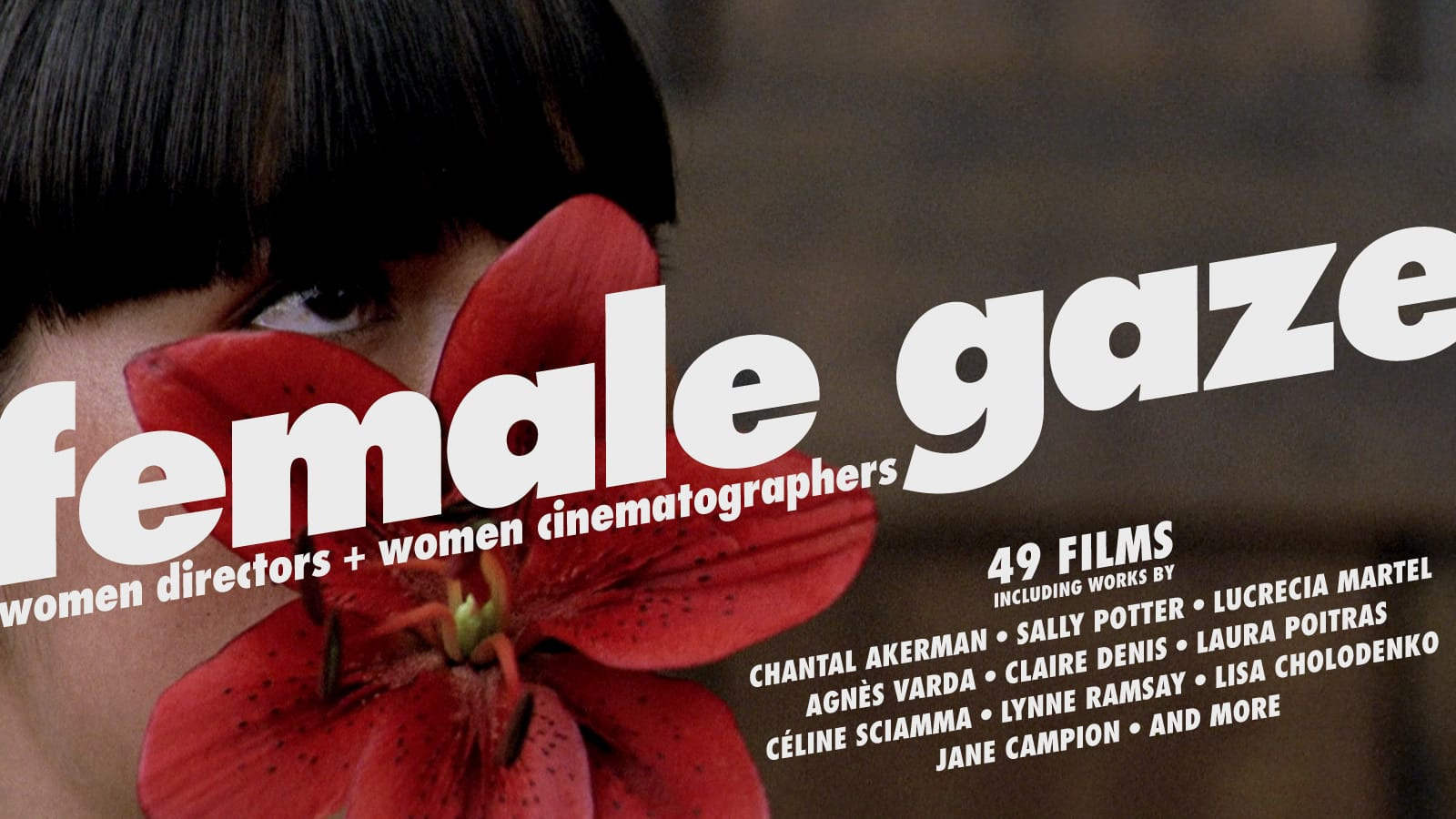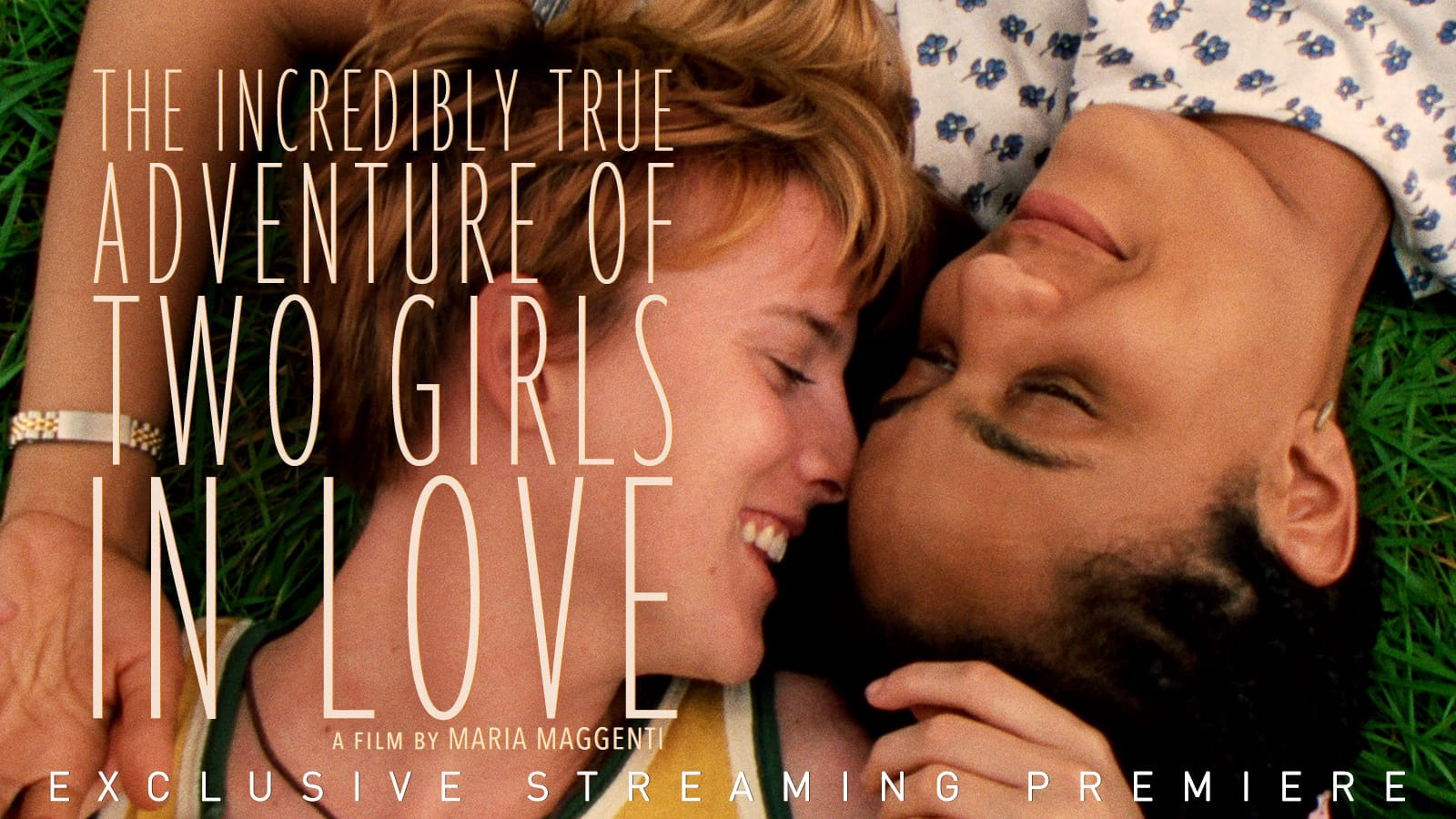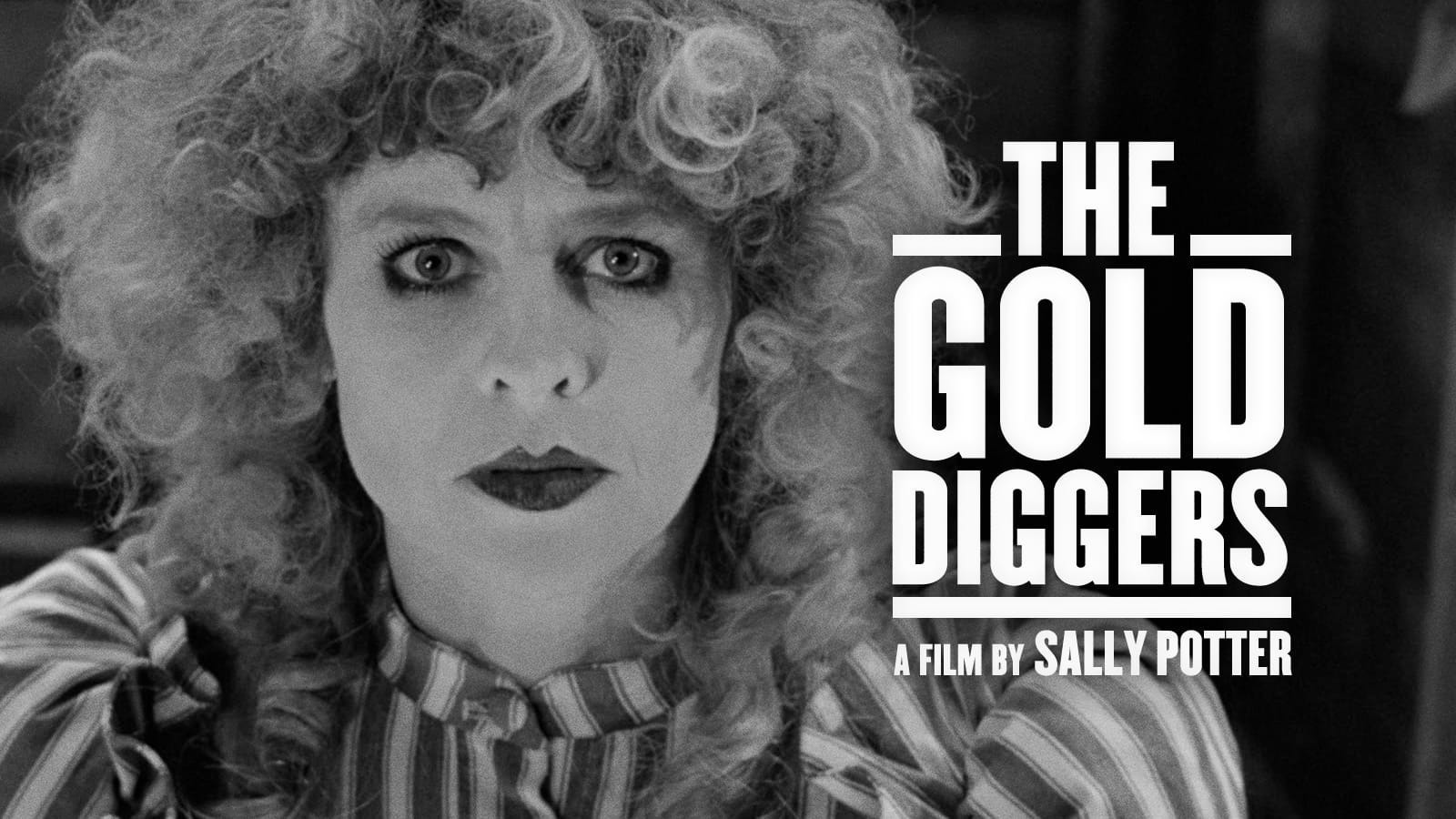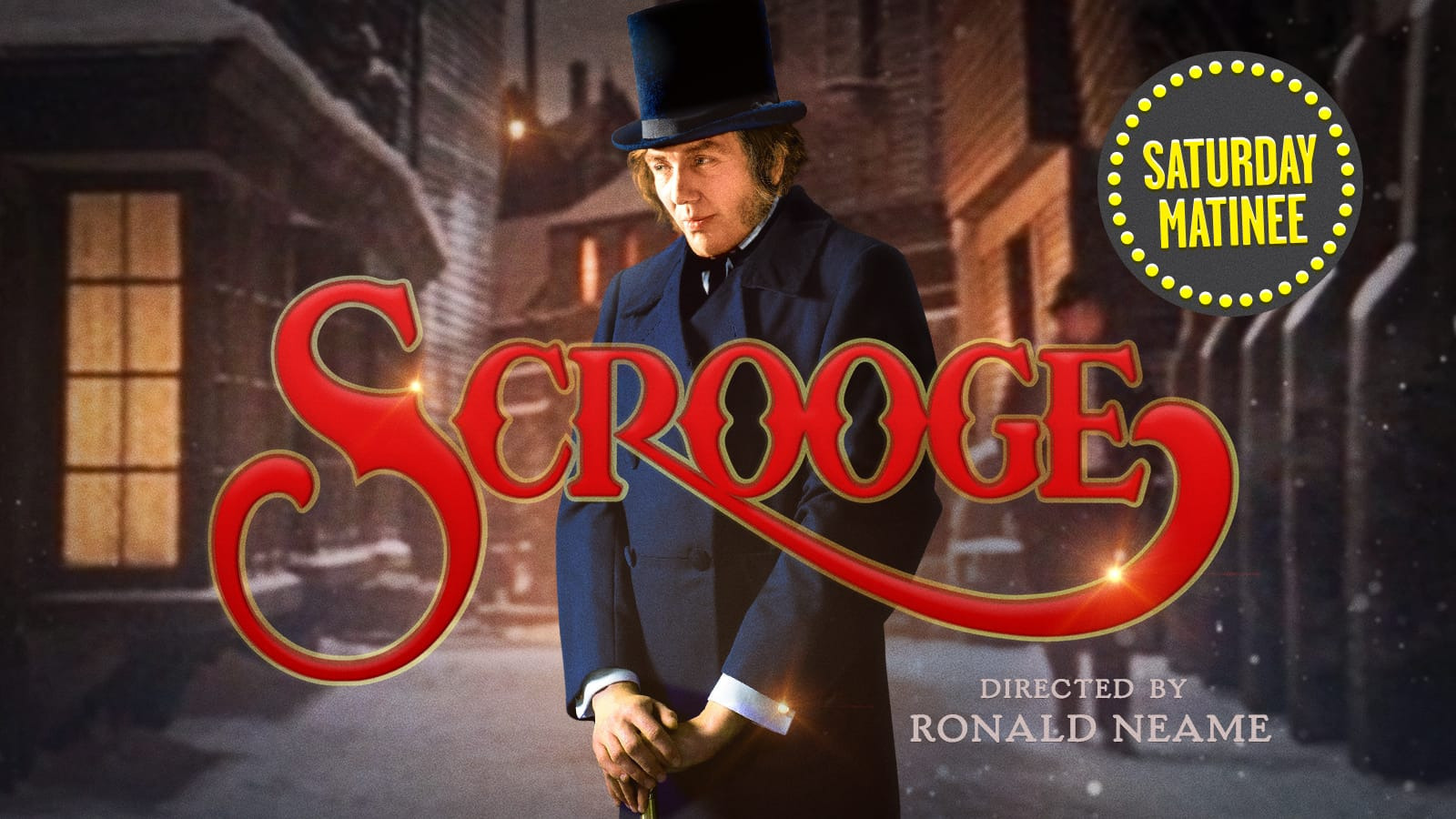The Criterion Channel’s December 2021 Lineup

The Criterion Channel’s December 2021 Lineup
No matter how you’re planning to celebrate the holidays this year, don’t forget to invite the Master of Suspense! Our 21-film Alfred Hitchcock retrospective is now playing alongside a revelatory series of collaborations between female directors and cinematographers, a deep dive into Italian neorealism, and star spotlights on Glenda Jackson and Joseph Cotten—with new streaming premieres, documentaries, double features, Criterion originals, and more coming each week.
WATCH THE DECEMBER 2021 CHANNEL LINEUP TEASER
* indicates programming available January 1
** indicates programming available only in the U.S.
TOP STORIES
PREMIERING DECEMBER 1

Hitchcock for the Holidays
START WATCHING
Merry Hitch-mas! During this season of light, embrace the darkness with a holiday helping of favorites from the Master of Suspense. For five decades, Alfred Hitchcock explored our innermost anxieties, desires, and obsessions in his diabolically constructed thrillers, which redefined the mechanics of screen terror through meticulous editing, voyeuristic camera work, and unforgettable set pieces. In early British classics like The 39 Steps and Sabotage, endlessly studied and imitated Hollywood masterpieces such as Rear Window and Vertigo, and fascinatingly personal late-career statements like Marnie and Frenzy, Hitchcock tapped into the peculiar pleasures of fear like no filmmaker before or since.
FEATURING: The Lodger: A Story of the London Fog (1927), Downhill (1927), The Man Who Knew Too Much (1934), The 39 Steps (1935), Sabotage (1936), Young and Innocent (1937), The Lady Vanishes (1938), Foreign Correspondent (1940), Saboteur (1942), Shadow of a Doubt (1943), Lifeboat (1944), Rope (1948), Rear Window (1954), The Trouble with Harry (1955), The Man Who Knew Too Much (1956), Vertigo (1958), Marnie (1964), Torn Curtain (1966), Topaz (1969), Frenzy (1972), Family Plot (1976)
Photo by: John Rawlings/Condé Nast/Shutterstock

Female Gaze: Women Directors + Women Cinematographers
START WATCHING
This sprawling selection of films both directed and shot by women testifies to an extraordinary tradition of female collaboration behind the camera. Spanning the last half century of cinema and including work by trailblazing director-cinematographer duos such as Chantal Akerman and Babette Mangolte (Jeanne Dielman, 23 quai du Commerce, 1080 Bruxelles; News from Home), Claire Denis and Agnès Godard (Beau Travail, Let the Sunshine In), and Jane Campion and Sally Bongers (A Girl’s Own Story, Sweetie), as well as fruitful recent partnerships like Céline Sciamma and Crystel Fournier (Tomboy, Girlhood) and Josephine Decker and Ashley Connor (Butter on the Latch, Thou Wast Mild and Lovely), these extraordinary films reveal a vital legacy of visionary women seizing the tools of visual storytelling and opening up new possibilities for cinema.
FEATURES: Film About a Woman Who . . . (1974)**, Daguerréotypes (1975), Jeanne Dielman, 23 quai du Commerce, 1080 Bruxelles (1975), News from Home (1976), Mur Murs (1981), The Willmar 8 (1981)*, The Gold Diggers (1983), Jane B. par Agnès V. (1988), Sweetie (1989), Go Fish (1994), Angela (1995), The Incredibly True Adventure of Two Girls in Love (1995), Nénette and Boni (1996), High Art (1998)**, Beau travail (1999), Conversations with Intellectuals About Selena (1999), La captive (2000), Personal Velocity (2002), The Headless Woman (2008), Home (2008)**, Shooting Women (2008), The Milk of Sorrow (2009), The Oath (2010), Tomboy (2011), Sister (2012)**, Stories We Tell (2012)**, Butter on the Latch (2013), Karaoke Girl (2013), Citizenfour (2014), Girlhood (2014), Second Coming (2014), Thou Wast Mild and Lovely (2014), The Wonders (2014), The Second Mother (2015), The Innocents (2016), Let the Sunshine In (2017), A Family Submerged (2018), The Miseducation of Cameron Post (2018), Ste. Anne (2021)
SHORTS: Joyce at 34 (1972), Girls at 12 (1975), Clorae and Albie (1976), A Girl’s Own Story (1984), Odds and Ends (1993), Swimmer (2012), Social Butterfly (2013), Roberta (2014), I Dream You Dream of Me (2018), Moving (2019)

Italian Neorealism
START WATCHING
Featuring a new introduction by film scholar David Forgacs
From the rubble of a devastated postwar Italy, an extraordinary artistic flowering sprang forth that soon took the world by storm. Led by figures such as Roberto Rossellini, Vittorio De Sica, and Luchino Visconti, a generation of filmmakers gave stirring expression to the concerns, struggles, and humanity of ordinary, working-class people with a blend of earthy naturalism and bittersweet lyricism. From early postwar landmarks like Rome Open City and Bicycle Thieves through later films like Rocco and His Brothers and Il posto that built upon neorealism’s concerns while opening up new thematic and aesthetic territory, this overview showcases multiple masterpieces that forever changed the course of film history by revealing the drama and poetry inherent in everyday life.
FEATURING: The Children Are Watching Us (1943), Rome Open City (1945), Paisan (1946), Bicycle Thieves (1948), Germany Year Zero (1948), Bitter Rice (1949), The Flowers of St. Francis (1950), Stromboli (1950), Variety Lights (1950), Europa ’51 (1952), Umberto D. (1952), I vitelloni (1953), Journey to Italy (1954), La strada (1954), Rocco and His Brothers (1960), Girl in the Window (1961), Il posto (1961), Salvatore Giuliano (1962)

Starring Glenda Jackson
START WATCHING
One of the most lauded performers of her generation, Glenda Jackson is known both for her dazzling work on stage and screen and, in later years, her commanding career as an outspoken member of the UK Parliament’s left wing (referring to herself as an “antisocial socialist”). Bringing an air of steely vulnerability to her intense portrayals of complex women, she has collaborated with provocative filmmakers like John Schlesinger (in the groundbreaking queer relationship drama Sunday Bloody Sunday) and Ken Russell (in the deliriously unhinged Tchaikovsky antibiopic The Music Lovers) but has proven herself equally at home in lighthearted romps like the breezy spy comedy Hopscotch opposite Walter Matthau.
FEATURING: Sunday Bloody Sunday (1971), The Music Lovers (1971), The Maids (1975), Stevie (1978), Hopscotch (1980), The Return of the Soldier (1982)

Starring Joseph Cotten
START WATCHING
When Orson Welles took Hollywood by storm in the early 1940s, he brought with him several members of his celebrated Mercury Theatre company—including the distinguished, mellifluous-voiced Joseph Cotten, who would go on to star in some of the greatest films of the decade under some of the era’s foremost directors. To classics like Welles’s The Magnificent Ambersons, Alfred Hitchcock’s Shadow of a Doubt (in which the actor offers an unforgettably unnerving portrayal of evil incarnate), and George Cukor’s Gaslight, Cotten brought both a moody sensitivity and an intriguingly cynical edge that lent depth and nuance to each of his delicately shaded performances.
FEATURING: The Magnificent Ambersons (1942), Shadow of a Doubt (1943), Gaslight (1944), The Third Man (1949), Niagara (1953)
STREAMING PREMIERES

The Incredibly True Adventure of Two Girls in Love
START WATCHING
Breaking new ground in queer representation when it was released in 1995, this tender and charming tale of first love traces the tentative relationship that develops between two high-school girls from very different worlds. Randy (Laurel Holloman) is a white, tomboyish outsider working at her aunt’s gas station; Evie (Nicole Ari Parker) is a popular, well-off Black girl with a boyfriend. As an unlikely friendship built around poetry and music deepens into attraction, director Maria Maggenti captures the muddled emotions of adolescent romance with warmth, humor, and refreshing authenticity.
Preservation funding provided by the Sundance Institute in collaboration with Strand Releasing.

Ste. Anne
START WATCHING
The hallucinatory debut feature by Rhayne Vermette is a stylistically adventurous meditation on the landscapes of her native Manitoba, impressionistically shot on dreamy 16 mm. As a party wanders into the night, word arrives that Renée (played by Vermette) has returned. Missing for years, her sudden reappearance unsettles her family, including her brother and his wife, who have been raising Renée’s daughter as their own. As Renée begins to reassemble the fragments of her past, ominous premonitions disrupt the land. Shot over the course of two years, Ste. Anne traces an allegorical reclamation of land through personal, symbolic, and historical sites all across Treaty 1 territory, heartland of the Métis Nation.

Lydia Lunch: The War Is Never Over
START WATCHING
Lydia Lunch: The War Is Never Over, directed by Beth B, is the first career-spanning documentary retrospective of Lydia Lunch’s confrontational, acerbic, and always electric artistry. As New York City’s preeminent No Wave icon, Lunch has forged a lifetime of music and spoken-word performance devoted to the rights of all women to indulge, seek pleasure, and raise their voices in rage as loud as any man. Through intimate behind-the-scenes footage and interviews with Lunch’s longtime collaborators and colleagues, the film examines Lunch’s work and her quest to empower women to voice the unheard and break the cycle of violence against them. What emerges is a thought-provoking portrait of a fearlessly transgressive artist who has consistently defied patriarchal expectations while forging a vocabulary of rare emotional honesty, philosophy, and humor.

Faya Dayi
START WATCHING
A sublime work of trance-state cinema, the debut feature by the Mexican Ethiopian filmmaker Jessica Beshir is a hypnotic immersion in the world of rural Ethiopia, a place where one commodity—khat, a euphoria-inducing plant once prized for its supposedly mystical properties—holds sway over the rituals and rhythms of everyday life. As if under the intoxicating influence of the drug itself, Faya Dayi unfurls as a hallucinogenic cinematic reverie, capturing hushed, intimate moments in the existences of everyone from the harvesters of the crop to people lost in its narcotic haze to a desperate but determined younger generation searching for an escape from the region’s political strife. The film’s exquisite monochrome cinematography—each frame a masterpiece sculpted from light and shadow—and time-bending, elliptical editing create a ravishing sensory experience that hovers between consciousness and dreaming.
CRITERION EDITIONS
PREMIERING DECEMBER 1

Throw Down (Johnnie To, 2004)
Criterion Collection Edition #1092
START WATCHING
The dazzlingly prolific Hong Kong master craftsman Johnnie To delivers a thrilling love letter to the cinema of Akira Kurosawa and to the art and philosophy of judo.
SUPPLEMENTAL FEATURES: A making-of documentary and interviews with To, coscreenwriter Yau Nai-hoi, composer Peter Kam, and film scholars David Bordwell and Caroline Guo.

Downhill Racer (Michael Ritchie, 1969)
Criterion Collection Edition #494
START WATCHING
Astonishing Alpine location photography and a young Robert Redford are just two of the visual splendors of this visceral study of a ruthlessly ambitious skier competing for Olympic gold.
SUPPLEMENTAL FEATURES: Interviews with Redford, screenwriter James Salter, editor Richard Harris, production manager Walter Coblenz, and former downhill skier Joe Jay Jalbert, and more.

The Magnificent Ambersons (Orson Welles, 1942)
Criterion Collection Edition #952
START WATCHING
Orson Welles’s beautiful, nostalgia-suffused follow-up to Citizen Kane is an emotionally rich family saga and a masterful elegy for a bygone chapter of American life.
SUPPLEMENTAL FEATURES: Two audio commentaries by scholars Robert L. Carringer and James Naremore and critic Jonathan Rosenbaum, audio interviews with Welles conducted by filmmaker Peter Bogdanovich, video essays, and more.

Sunday Bloody Sunday (John Schlesinger, 1971)
Criterion Collection Edition #629
START WATCHING
John Schlesinger’s groundbreaking portrait of a bisexual love triangle may be the seventies’ most intelligent, multitextured film about the complexities of romantic relationships.
SUPPLEMENTAL FEATURES: Interviews with Schlesinger, cinematographer Billy Williams, actor Murray Head, production designer Luciana Arrighi, John Schlesinger biographer William J. Mann, and Schlesinger’s longtime partner, photographer Michael Childers.

Ratcatcher (Lynne Ramsay, 1999)
Criterion Collection Edition #162
START WATCHING
In her breathtaking and assured debut feature, Lynne Ramsay creates a haunting evocation of a troubled Glasgow childhood in a work at once raw and deeply poetic.
SUPPLEMENTAL FEATURES: Interviews with Ramsay and cinematographer Alwin Küchler and three short films by Ramsay.
CRITERION ORIGINALS

Observations on Film Art No. 45: CinemaScope in Contempt
START WATCHING
Having explored Jean-Luc Godard’s iconoclastic use of the boxy 4:3 aspect ratio in Vivre sa vie in the previous edition of Observations on Film Art, Professor David Bordwell here breaks down the French New Wave renegade’s equally experimental use of the elongated CinemaScope frame in another of his 1960s masterpieces, Contempt. While in Vivre sa vie Godard used the square frame to craft an intensely up-close portrait of a woman, in Contempt—a study of a marriage in breakdown spectacularly set against the coast of Italy—he pushed the aesthetic possibilities of CinemaScope to their limits, creating a work that is as much about landscape and environment as it is about human beings.
WOMEN FILMMAKERS

Films by Elisabeth Subrin
START WATCHING
Featuring a new interview with the filmmaker
FEATURE: A Woman, a Part (2016)
SHORTS: Swallow (1995), The Fancy (2000), Sweet Ruin (2008), For Maria (2019)

The Gold Diggers
START WATCHING
Made with an all-woman crew, Sally Potter’s bold feature debut is a surrealist science-fiction musical that explores the link between female cinematic representation and capitalist exploitation.

Second Coming
WEDNESDAY, DECEMBER 22
Celebrated playwright Debbie Tucker Green makes her fascinating directorial debut with this enigmatic, engrossing, and brilliantly performed portrait of a Black British family navigating a seemingly unexplainable crisis.

High Art
WEDNESDAY, DECEMBER 29
A mesmerizing Ally Sheedy stars as a photographer loosely based on Nan Goldin in Lisa Cholodenko’s smart and sexy tale of ambition, sacrifice, and seduction in the nineties New York art world.
More women filmmakers featured in this month’s programming: Female Gaze: Women Directors + Women Cinematographers, The Incredibly True Adventure of Two Girls in Love (1995), Gasman (1998), Ratcatcher (1999), The Beaches of Agnès (2008), Lydia Lunch: The War Is Never Over (2019), Slip (2019), Troublemaker (2019), By Way of Canarsie (2020), Family Tree (2020), Polygraph (2020), The Rose of Manila (2020), The Lights Are On, No One’s Home (2021), Faya dayi (2021), Ste. Anne (2021)
TRUE STORIES

The Hard Stop
START WATCHING
George Amponsah’s moving look at the raw human story behind a shocking police killing offers trenchant insight into the racial and cultural realities that shape the lives of young Black men in Britain.

Strange Victory
START WATCHING
This extraordinary portrait of postwar American fascism explores how servicemen returned home from defeating a racist and genocidal enemy to find a United States plagued by prejudice, Jim Crow, anti-Semitism, anti-Catholicism, and xenophobia.

The Beaches of Agnès
MONDAY, DECEMBER 27
Replete with images of wonder and whimsy, Agnès Varda’s enchanting self-portrait, made in her eightieth year, is a playful and poignant record of a life lived fully and passionately in the name of cinema.
More documentaries featured in this month’s programming: Joyce at 34 (1972), Daguerréotypes (1975), Girls at 12 (1975), Clorae and Albie (1976), News from Home (1977), Mur Murs (1981), Jane B. par Agnès V. (1988), Conversations with Intellectuals About Selena (1999), Dark Days (2000), Shooting Women (2008), The Oath (2010), Stories We Tell (2012), Citizenfour (2014), Lydia Lunch: The War Is Never Over (2019), Faya dayi (2021)
SATURDAY MATINEES

A Town Called Panic
START WATCHING
Three plastic toys embark on a freewheeling adventure in this hilarious, delightfully wacky stop-motion extravaganza based on the Belgian cult TV series.

The Little Princess
START WATCHING
Ringlet-haired dynamo Shirley Temple is at her irresistible best in this spirited Technicolor adaptation of the beloved novel by Frances Hodgson Burnett.

Long Way North
START WATCHING
Vivid characters and stunning 2D animation bring to life this thrilling adventure about a fearless girl on an epic Arctic quest.

Scrooge
SATURDAY, DECEMBER 25
Albert Finney offers his inimitable characterization of the miserly Ebeneezer Scrooge in this handsomely mounted musical take on Charles Dickens’s holiday classic A Christmas Carol.
SHORT-FILM PROGRAMS

Dedza Film Presents
Who Will Start Another Fire
START WATCHING
Dedza Films is a new distribution initiative that aims to champion filmmakers from underrepresented communities around the world, beginning with Who Will Start Another Fire, a collection of nine revelatory shorts by emerging filmmakers from Israel, Nigeria, the Philippines, Uganda, and the United States. From child’s-eye portraits of Nigerian (Family Tree) and Chinese American (Like Flying) girlhood to complex explorations of Black masculinity (Not Black Enough) and gentrification (The Lights Are On, No One’s Home), these eclectic works touch on questions of politics, history, memory, and culture through innovative storytelling and profound personal insight.
FEATURING: Slip (2019), Troublemaker (2019), By Way of Canarsie (2020), Family Tree (2020), Like Flying (2020), Not Black Enough (2020), Polygraph (2020), The Rose of Manila (2020), The Lights Are On, No One’s Home (2021)

Short + Feature: Holiday Affairs
Gasman and Tuesday, After Christmas**
START WATCHING
’Tis the season for infidelity as a pair of husbands and fathers living double lives discover that duplicity is particularly devastating during the holidays.

Short + Feature: The Night Before Christmas
A Christmas Dream and Fanny and Alexander
START WATCHING
See the magic of Christmas Eve through a child’s eyes in an enchanting stop-motion wonder and a sumptuous late-career masterpiece from Ingmar Bergman.

Stop-Motion Shorts by Niki Lindroth von Bahr
TUESDAY, DECEMBER 28
Forlorn fish express their alienation through song, a pair of pigeons visit a zoo without animals, and a lonely fox has an enigmatic encounter with the new rabbit next door—welcome to the startlingly surreal, delicately bittersweet world of Swedish stop-motion animator Niki Lindroth von Bahr, whose hyper-detailed miniatures are at once uncanny and strikingly lifelike. Though they star a menagerie of anthropomorphic animals, these wondrously strange and captivating existential fables explore modern malaise with a piercing poignancy that is all too human.
FEATURING: Tord and Tord (2010), Bath House (2014), The Burden (2017), Something to Remember (2019)
DOUBLE FEATURES
HITCHCOCK EDITION!

Double Feature: I Married a Sociopath
Marnie and Martha
START WATCHING
Alfred Hitchcock and Rainer Werner Fassbinder explore the perverse inner workings of sadomasochistic relationships in a pair of lush, expressionistically stylized psychodramas.

Double Feature: Kills for Thrills
Rope and Swoon
START WATCHING
The infamous 1924 Leopold and Loeb murder inspires one of Alfred Hitchcock’s most daring experiments and a watershed work of the New Queer Cinema.

Double Feature: Homewreckers
Shadow of a Doubt and To Sleep with Anger
START WATCHING
Charismatic yet mysteriously menacing figures from the past return to upend the quiet lives of ordinary families in a dark-hearted thriller and a poetic touchstone of the nineties Black-cinema renaissance.

Double Feature: Seeing Double
Vertigo and Phoenix
FRIDAY, DECEMBER 24
Alfred Hitchcock’s most celebrated masterpiece inspires another mesmerizing investigation of obsessive love and dual identity set amid the ruins of postwar Germany.

Double Feature: A Twice-Told Tale
The Man Who Knew Too Much (1934) and The Man Who Knew Too Much (1956)
FRIDAY, DECEMBER 31
An ordinary couple’s vacation abroad turns into a parent’s worst nightmare in Alfred Hitchcock’s 1930s British classic and his own underrated Hollywood remake.



